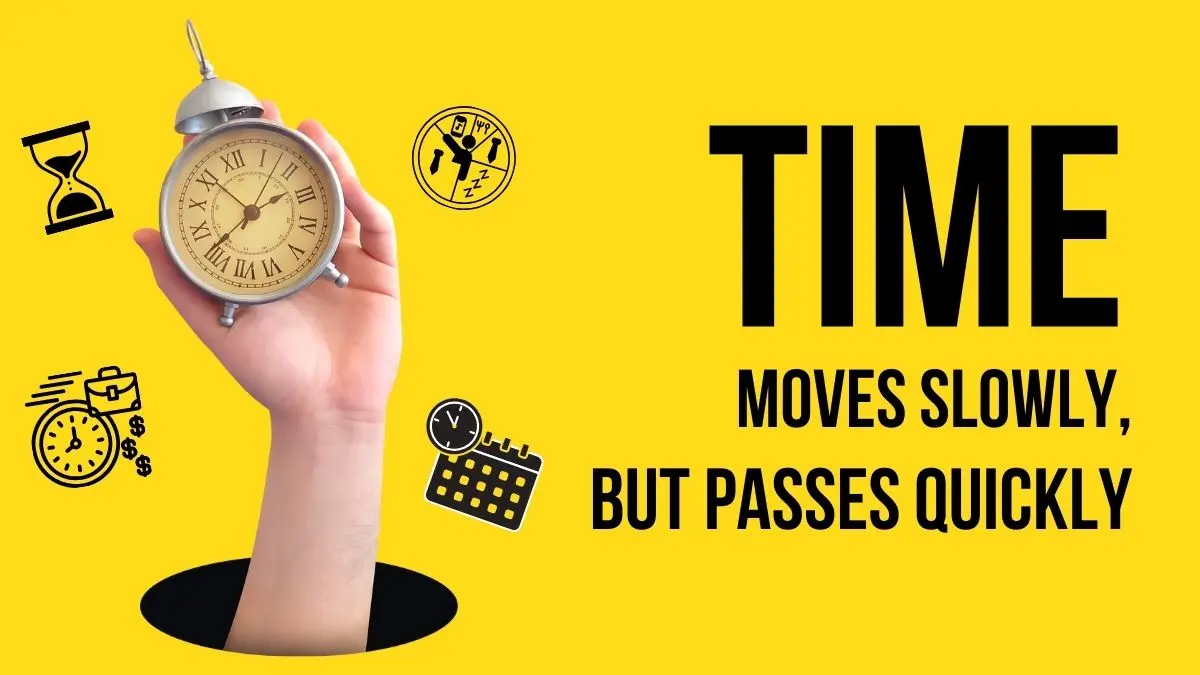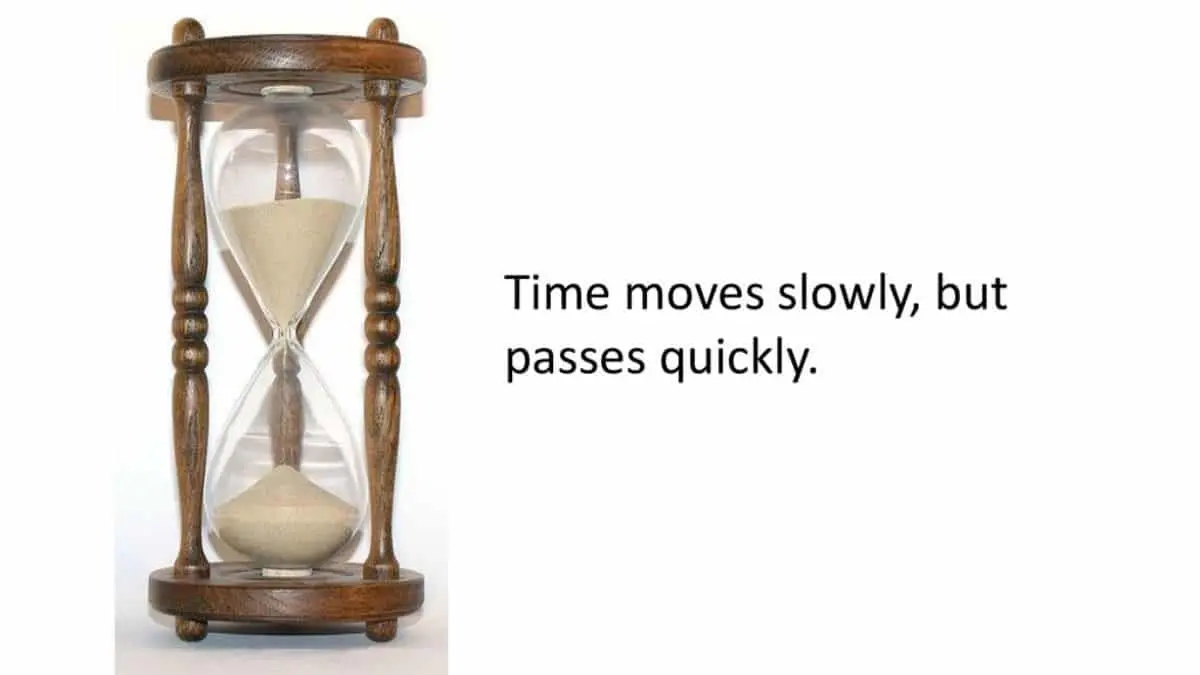Time is an enigmatic concept that has fascinated philosophers, scientists, and poets for centuries. One of the most poignant reflections on time comes from the quote, “Time moves slowly, but passes quickly.” At first glance, this phrase may appear contradictory, yet it captures a profound truth about our perception of time and the human experience.
The Perception of Time
To understand the hidden meaning behind this quote, we must first delve into how we perceive time. human perception of time is subjective and can vary greatly depending on circumstances, emotions, and activities. When we are engaged in monotonous tasks or are eagerly waiting for an event, time seems to drag on. Minutes feel like hours, and we are acutely aware of every passing second. Conversely, when we are absorbed in enjoyable activities or are deeply focused, time flies by unnoticed. Hours feel like minutes, and we are often surprised by how quickly time has passed.
This dual nature of time perception is what the quote encapsulates. The slow movement of time refers to those moments when time seems to crawl, often associated with anticipation, boredom, or discomfort. The quick passage of time reflects those periods of engagement, joy, and contentment, where time seems to vanish before we even realize it.

The Hidden Meaning
Beyond the surface level of time perception, the quote “Time moves slowly, but passes quickly” offers deeper insights into life and our relationship with time. Here are a few interpretations of its hidden meaning:
- The Fleeting Nature of Life: Life, in the grand scheme, is fleeting. While the days may seem long, the years fly by. This paradox reminds us that while we may feel stuck in the moment, life as a whole is transient. This realization encourages us to cherish each moment and live life to its fullest, understanding that our time is limited.
- The Importance of Mindfulness: The quote highlights the importance of mindfulness – being present in the moment. When we are mindful, we can appreciate the slowness of time and savor our experiences. This practice can transform mundane moments into meaningful ones, allowing us to live a more fulfilling life.
- Reflection on Procrastination: Procrastination can make time feel slow as we dread upcoming tasks. However, before we know it, deadlines approach, and time seems to have slipped away. This aspect of the quote serves as a caution against procrastination and a reminder to use our time wisely.
- Childhood and Aging: For children, time seems to move slowly as they eagerly wait for milestones like birthdays and holidays. As we age, time appears to accelerate, with years blending into each other. This shift in perception underscores the inevitability of aging and the importance of making the most of our younger years.
Practical Implications
Understanding the dual nature of time perception can have practical implications in our daily lives. Here are a few ways to harness this understanding for personal growth and well-being:
- Embrace the Present: By embracing the present moment, we can slow down our perception of time. Engage fully in whatever you are doing, whether it’s a work task, a conversation, or a leisure activity. This practice of mindfulness can lead to greater satisfaction and a deeper appreciation of life.
- Balance Routine and Novelty: Incorporating a balance of routine and novelty can influence our perception of time. Routines provide structure and stability, making time feel slower and more manageable. Introducing new activities and experiences can make life feel more vibrant and dynamic, preventing the sensation of time slipping away unnoticed.
- Set Goals and Prioritize: Setting clear goals and prioritizing tasks can help combat procrastination. Breaking tasks into smaller, manageable chunks can make time feel less overwhelming and more actionable. By staying organized and focused, we can make better use of our time and reduce the stress of impending deadlines.
- Create meaningful Memories: Invest in creating meaningful memories with loved ones. Time spent with family and friends can seem to pass quickly, but these moments are invaluable. Prioritize relationships and experiences that bring joy and fulfillment, as these will be the memories that enrich your life.

Philosophical Reflections
The paradox of time also invites us to reflect on philosophical questions about existence and the nature of reality. Time, as we perceive it, may be a construct of the human mind, influenced by our consciousness and experiences. This opens up intriguing discussions about the nature of time itself – is it an absolute entity, or is it relative and subjective?
Philosophers like Henri Bergson have explored the concept of “duration,” emphasizing the difference between measurable clock time and the lived experience of time. Bergson argues that real time, or “duration,” is qualitative and continuous, experienced subjectively by individuals. This perspective aligns with the quote, highlighting the fluid and personal nature of time perception.
Conclusion
“Time moves slowly, but passes quickly” is more than a simple observation; it is a profound reminder of the complexity of time and our relationship with it. By understanding this paradox, we can gain deeper insights into our own lives, learn to cherish each moment, and strive to live more mindfully. In a world where time is often seen as a commodity, this quote invites us to slow down, reflect, and appreciate the transient beauty of our existence.
Also Read: Reading should not be presented to children as a chore, a duty. It should be offered as a gift




